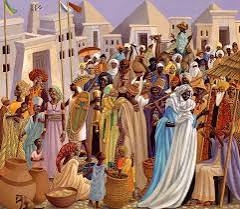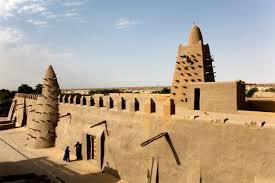




Day 19 of Discover Africa Challenge
Ashaolu Opeyemi Christiana@opeyemichristianaashaolu397557
1 year ago
On today's episode of discover Africa Challenge with me, we'd be travelling back in time to the Empire of Mali. I’m excited to share some fascinating insights about the historic Kingdom and Empire of Mali, a majestic and influential region in West Africa that flourished from the 13th to the 16th centuries. And it has a unique Governance and Rulership
The Empire of Mali was renowned for its sophisticated governance, particularly under the rule of notable emperors like Sundiata Keita and Mansa Musa. Sundiata, the founder of the empire, established a centralized government that allowed for both local autonomy and imperial oversight. Mansa Musa, who ascended to the throne in the early 14th century, is often remembered for his immense wealth and his pilgrimage to Mecca, which showcased the empire's prosperity and cultural significance.
The empire was divided into provinces, each governed by a ruler appointed by the emperor. This effective administrative structure helped maintain order and promote trade, which was vital to Mali's economy. The legal system was influenced by Islamic law, integrating traditional customs with religious principles.
Festive Seasons
One of the most celebrated times in the kingdom was during the **Festival of the New Year**, or **Gerewol**, which involved vibrant celebrations filled with music, dance, and traditional rituals. This festival was a time for families and communities to come together, showcasing their rich culture through elaborate performances. The Gerewol festival is particularly fascinating as it includes beauty contests among men and elaborate dance competitions, displaying the lively spirit of the Malian people.
During the harvest period, another festive time, communities celebrated their agricultural abundance with feasts, music, and storytelling. These seasons fostered a sense of unity and allowed the people to express gratitude for their bountiful harvests.
Let's delve into her Cultural Achievements and Trade
The Empire of Mali was not just a political power; it was also a cultural beacon. Cities like Timbuktu became centers of learning and trade, attracting scholars and merchants from across the Muslim world and beyond. The famed University of Sankore, part of Timbuktu, was a hub for the study of theology, law, and science, and its libraries housed invaluable manuscripts.
Her Historical Achievements
✓ The Mali Empire: At its height in the 14th century, the Mali Empire was one of the largest and wealthiest empires in African history. It reached its zenith under the reign of Emperor Mansa Musa (1312-1337), who is often regarded as one of the wealthiest individuals in history. His pilgrimage to Mecca in 1324 showcased Mali's vast riches and helped put the empire on the global map.
✓Education and Culture: The city of Timbuktu, one of the empire’s key cities, became a major center for education, culture, and learning. The University of Sankore and other madrasas attracted scholars from across Africa and the Middle East. The city housed vast libraries with thousands of manuscripts on subjects ranging from astronomy to law.
✓Architecture: The architectural achievements of Mali, particularly in Timbuktu, are notable. The Djinguereber Mosque and the Sankore Mosque are fine examples of Sudano-Sahelian architecture that continue to be prominent cultural symbols.
✓Islamic Influence: The spread of Islam was a significant achievement of the Mali Empire, influencing governance, culture, and education. Islamic scholars played a key role in administration and education, helping to establish a system of governance that integrated Islamic principles with traditional customs.
Trade Practices
✓Trans-Saharan Trade:Mali thrived through its control of trans-Saharan trade routes, which connected West Africa with North Africa and beyond. The empire traded gold, salt, ivory, and slaves, making it a key player in the lucrative commerce of these commodities.
✓Gold and Salt Mining: Mali was rich in natural resources, particularly gold. During the medieval period, gold from Mali accounted for a significant portion of the world’s supply, contributing immensely to the wealth of the empire. Salt, which was mined in the Sahara Desert.
me tomorrow as we explore another part of Africa cause this journey of discovering Africa with me has just begun.
Photo Credit
Pinterest
#VisitAfrica
#DiscoverAfrica
#ExploreAfrica
#AfricanTourismSpotChallenge
#NircleNewsFeed
#SadPen
#NircleCommunity
📍Algeria, Algeria <a style="text-decoration:none; color:#FF0000;" href="https://feed.nircle.com/tags/neighbors" target="_blank">#neighbors</a>

